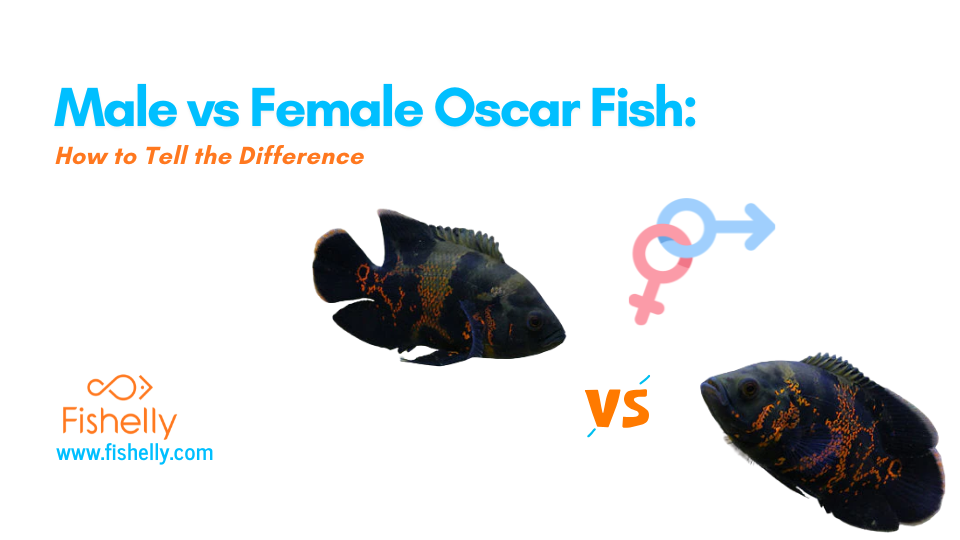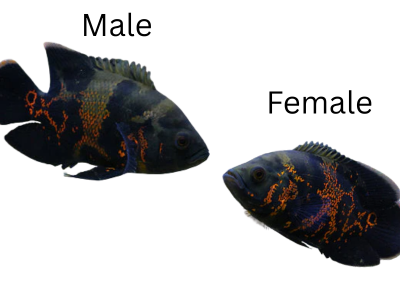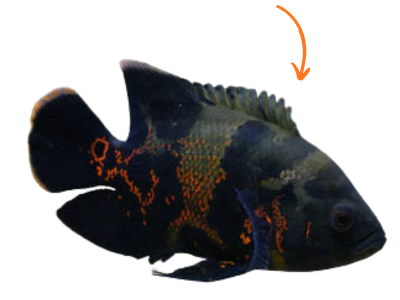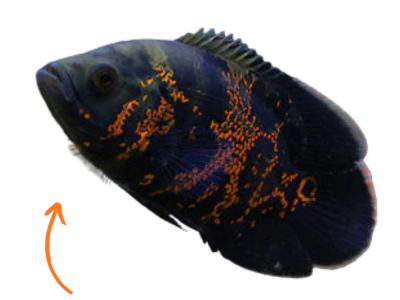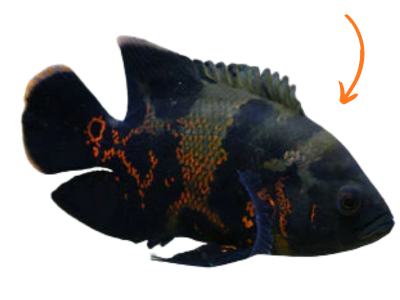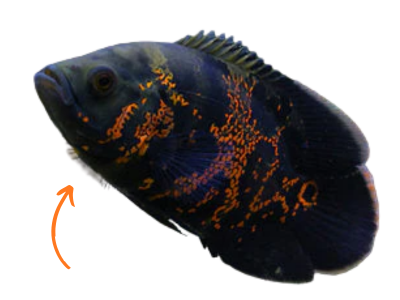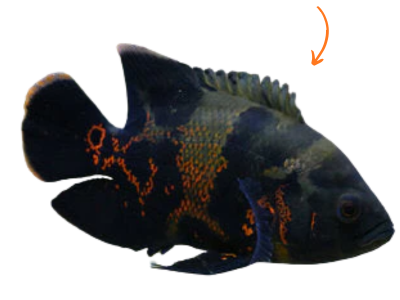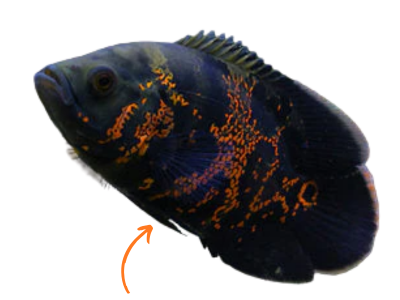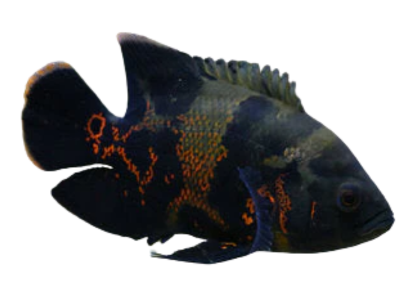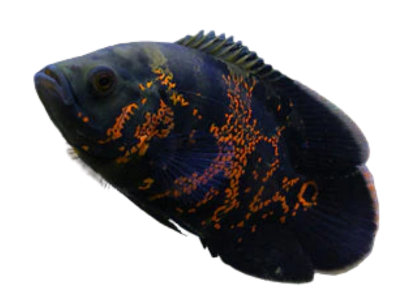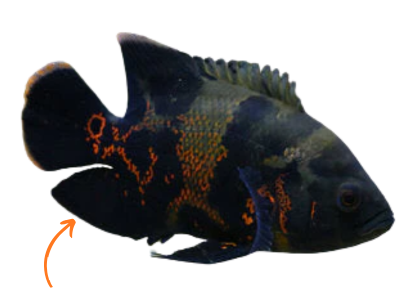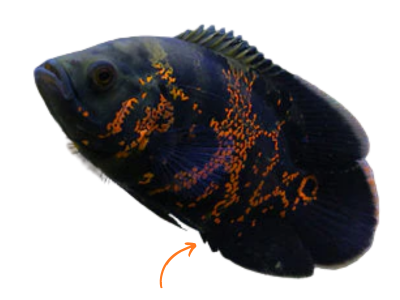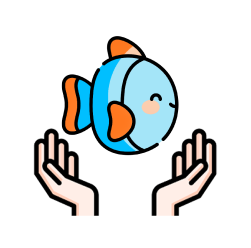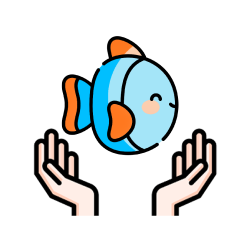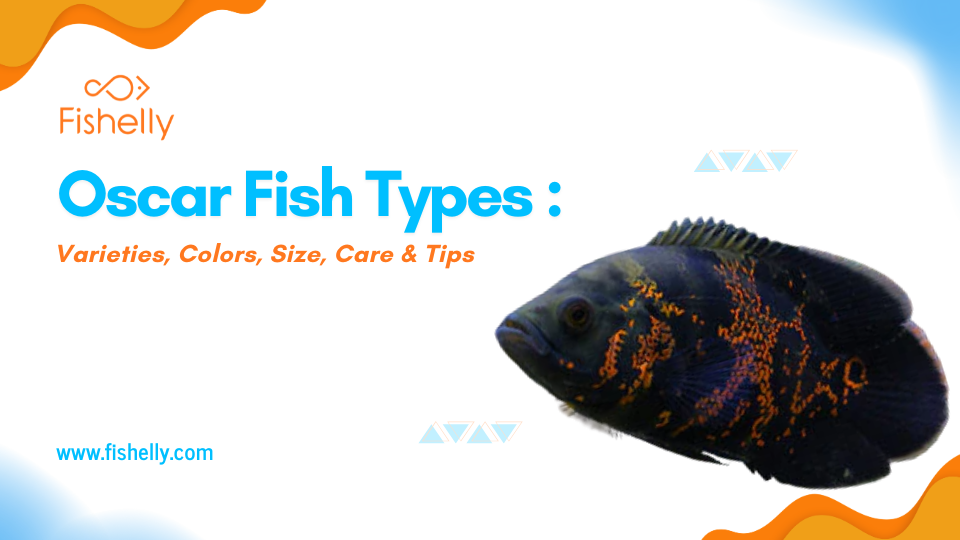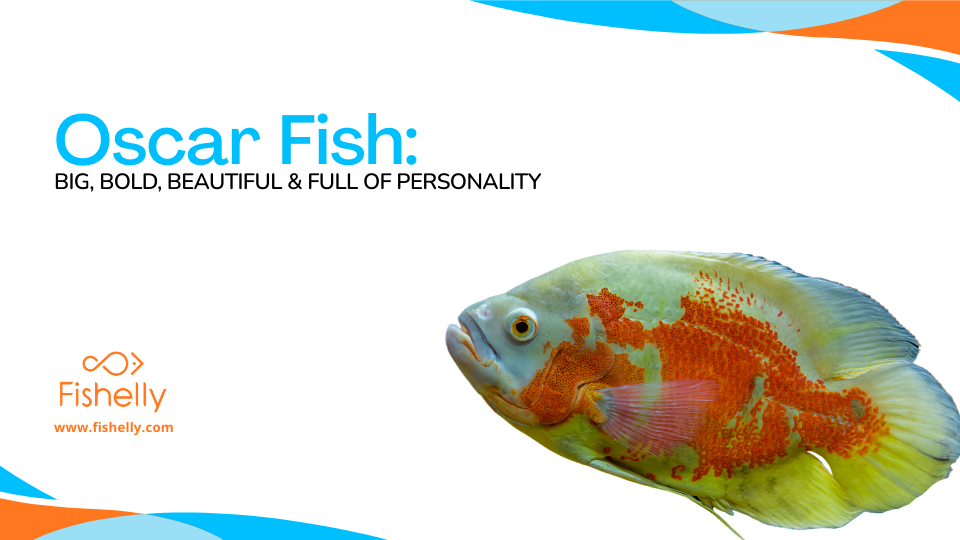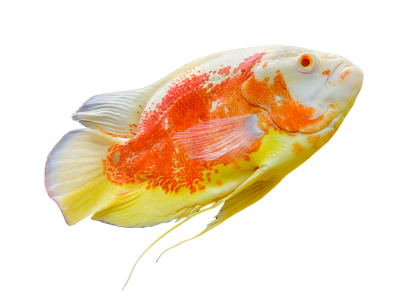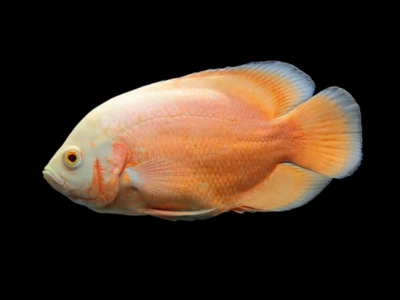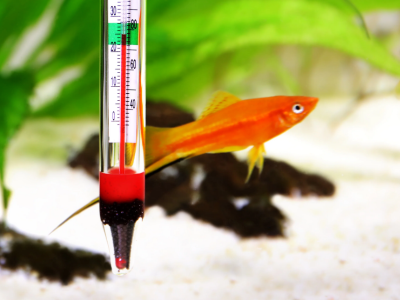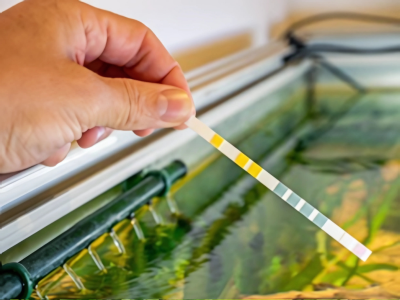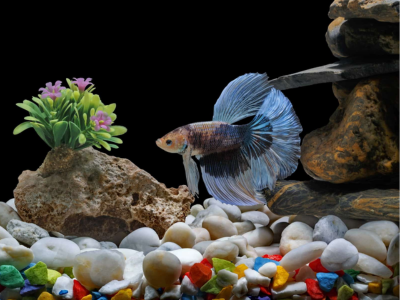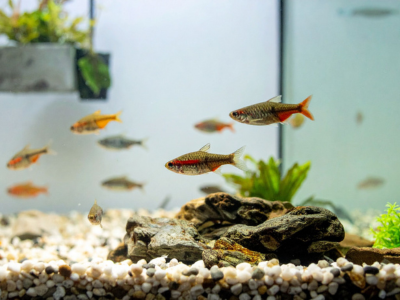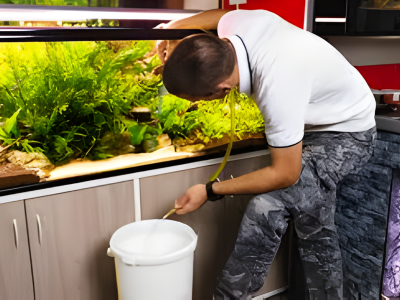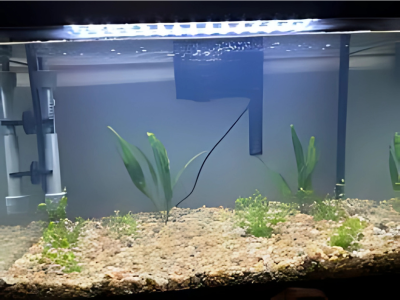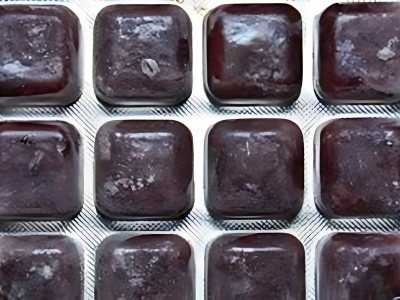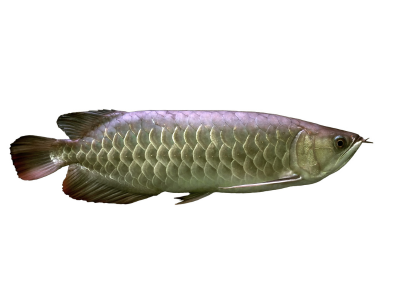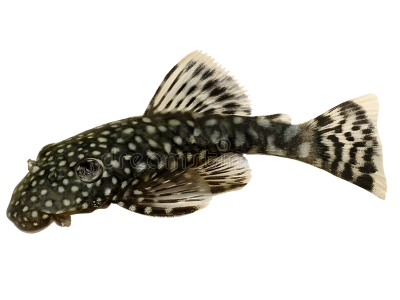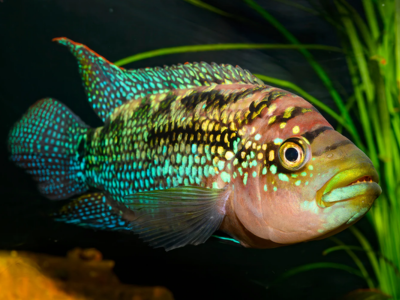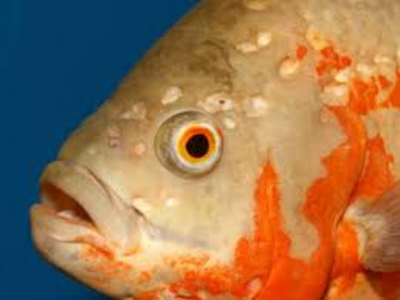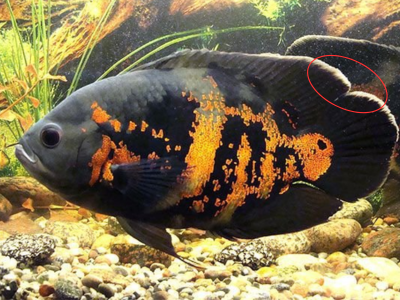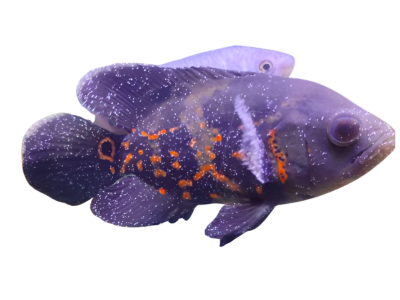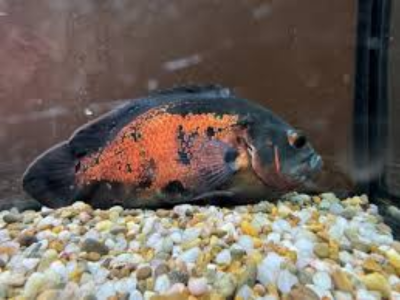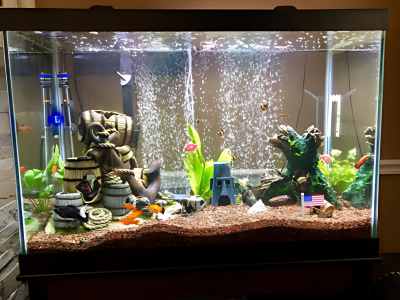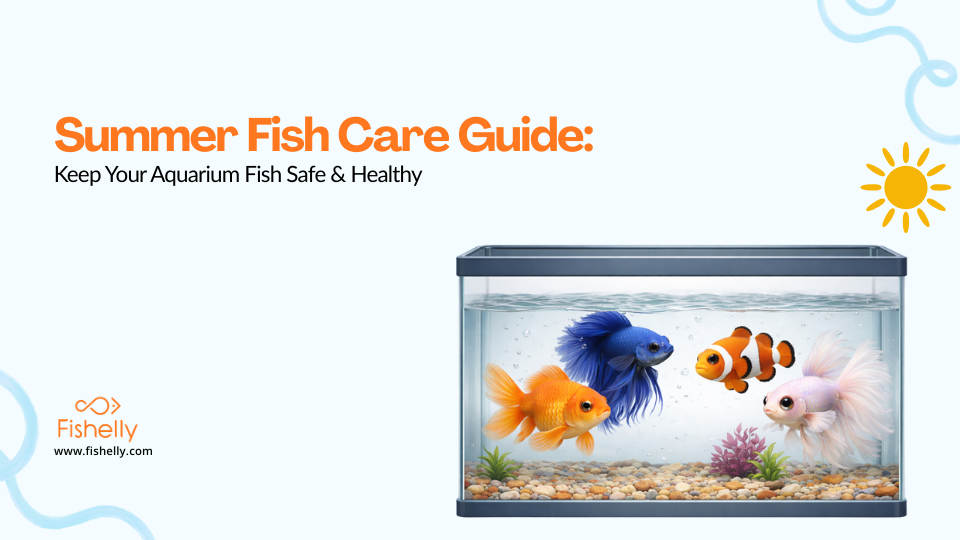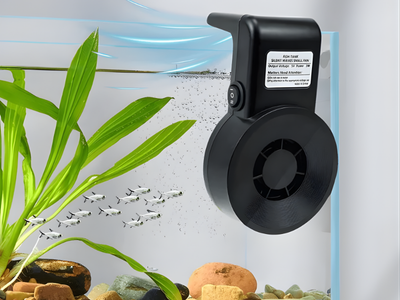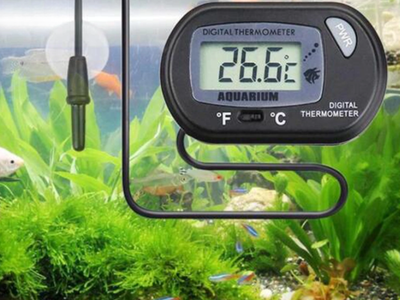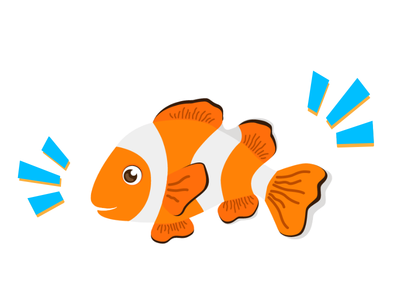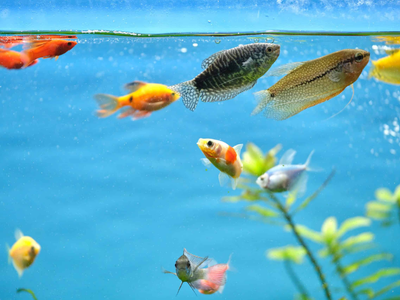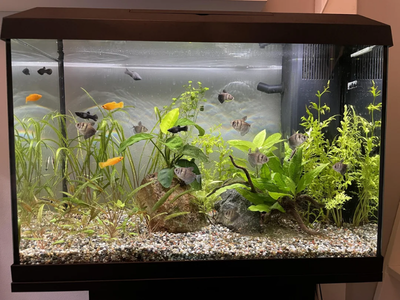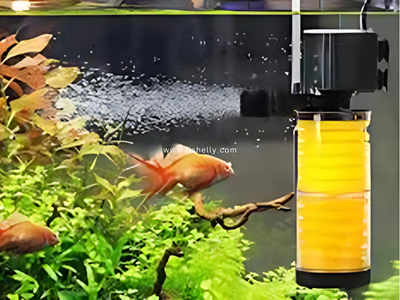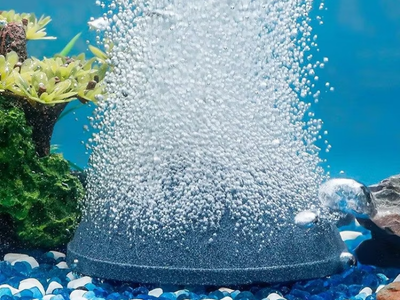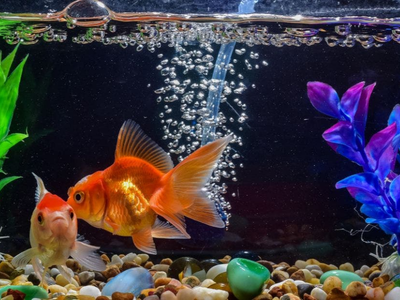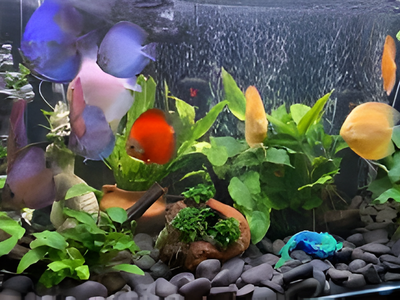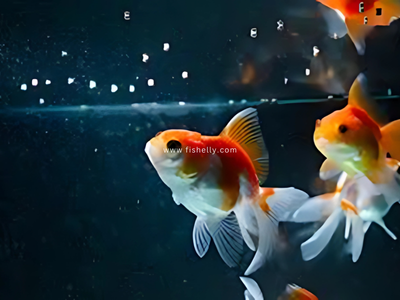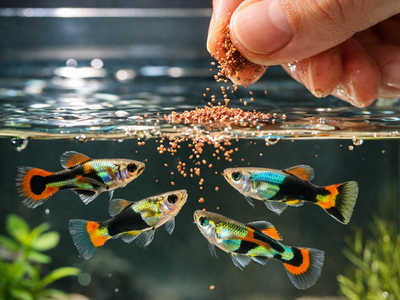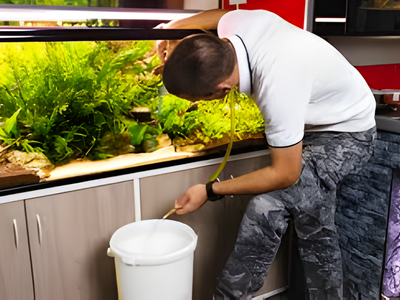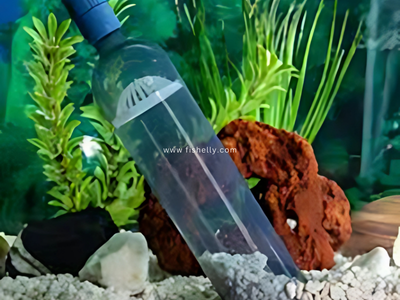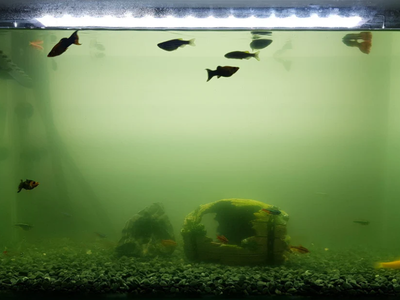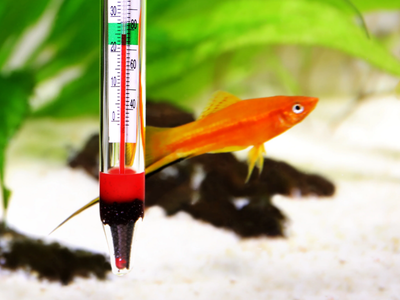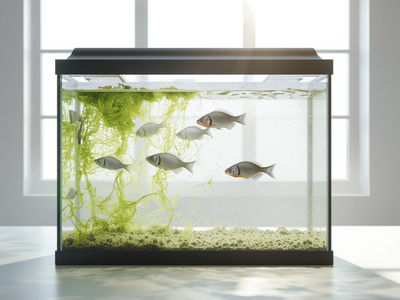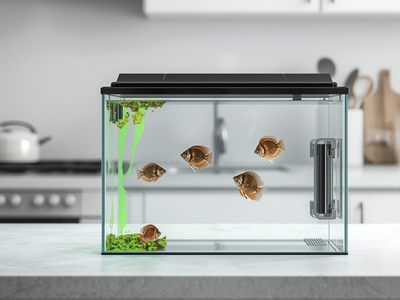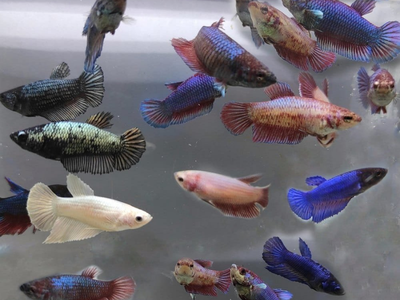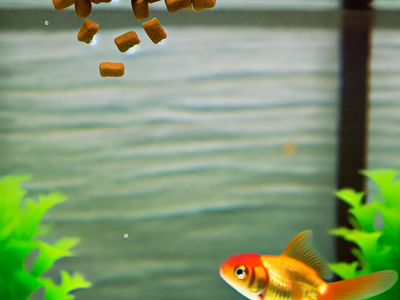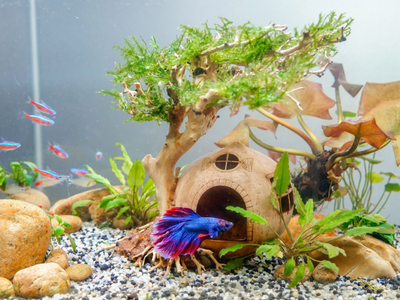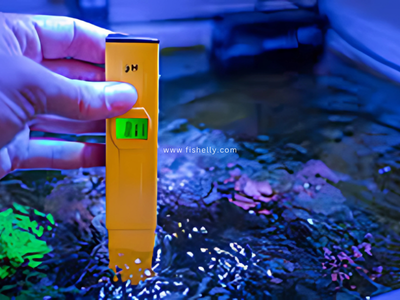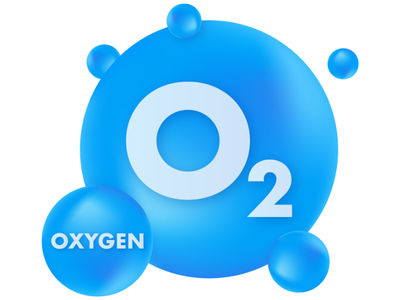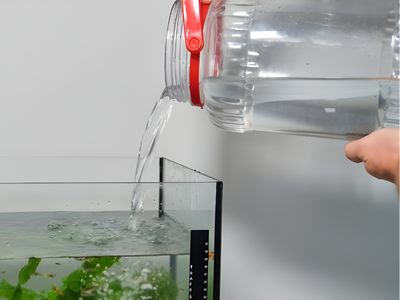Discover beautiful Oscar fish types including Tiger, Red, Albino, Blue, Mosaic, Chocolate & more. Learn about colors, size, tank care, behavior, lifespan, and FAQs in this complete Oscar fish guide.
- Tiger Oscar
- Red Oscar
- Lemon Oscar
- Veil Tail Oscar
- Green Oscar
- White Oscar
- Wild Oscar
- Gold Oscar
- Pink Oscar
- Platinum Oscars
- Albino Oscar
- Lutino Oscar
- Black Oscar
- Blue Oscar
- Copper Oscar
- Longfin Oscar
- Chocolate Oscar
- Leopard Oscar
- Red Chili Oscar
- Bumble Bee Oscar
- Mango Oscar
- Faq
- Conclusion
Oscar fish are among the most popular and fascinating freshwater aquarium fish in the world. People often call Oscars “water dogs” because they recognize their owners and beg for food and interact with people outside the tank. The fish present a beautiful appearance while they display unique personality traits.
People today can choose from an extensive collection of Oscar fish that displays many different color patterns and fin types. Selective breeding together with natural variations enables hobbyists to select from four primary Oscar types which include Tiger Oscars and Red and Gold Oscars and White and Platinum Oscars and three rare types which are Blue and Mosaic and Chocolate. The comprehensive guide presents 20 Oscar fish types which readers will learn about through their visual description and their distinctive features and their popularity among aquarists across the globe.
Tiger Oscar
Tiger Oscar is the most traditional Oscar fish type which people keep as pets. Oscar fish typically first came to mind when people heard about the species name “Oscar fish.” The fish displays a dark base color which can appear as black or dark brown while its body shows bright orange or red patterns. The patterns on the body of the animal resemble tiger stripes or flames which led to the animal receiving its current name.
Tiger Oscars are known for being very hardy and strong, which makes them a great choice for beginners who are new to keeping large cichlids. The fish can adapt to any tank environment which provides sufficient space and maintains proper water standards. Their active swimming style and bold behavior make them a true centerpiece fish in any large aquarium.
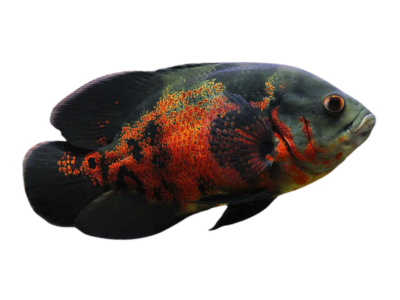
Red Oscar
Red Oscars are famous for their intense red or orange-red color that covers most of their body. Red Oscars exhibit less black pigmentation than Tiger Oscars which enhances their red coloration. Under good aquarium lighting conditions, a Red Oscar exhibits its absolute maximum beauty.
Red Oscars stand out as one of the most popular Oscar fish types because their vibrant appearance and strong personality make them highly desired by aquarium enthusiasts. The Oscars share the same basic traits as all other Oscars they show curiosity about their surroundings while they interact with people and they show aggressive behavior. The red color of their skin becomes deeper and richer after they receive proper care and nutritional food.
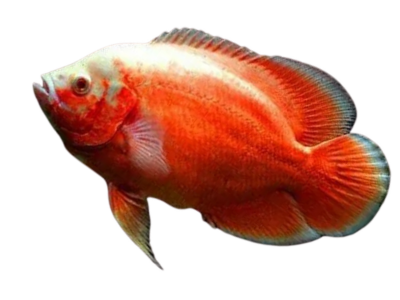
Lemon Oscar
Lemon Oscars display a bright and clean appearance through their yellow and light orange color range. Selective breeding practices lead to this color variety when breeders select fish with lighter colors and breed them to produce offspring with those exact traits.
The fish gain additional beauty when they inhabit aquariums which display dark backgrounds and green plants because their light color becomes more visible. Lemon Oscars display the same characteristics as all other Oscar fish species but their soft, glowing color makes them popular among people who want a unique alternative to typical red or tiger patterns.
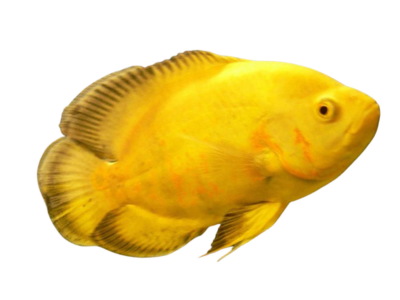
Veil Tail Oscar
The long flowing fins of Veil Tail Oscars create an exceptional appearance for these fish which makes them look more elegant than standard Oscars. Their fins move through the water which creates a visual effect that resembles soft cloth making them beautiful to observe.
Veil Tail Oscars require additional maintenance because their long fins need extra protection. Their delicate fins become vulnerable to damage from sharp decorations and rough rocks and aggressive tank mates. The fish require an aquarium which contains smooth elements and provides adequate space for swimming and shows decorative designs.
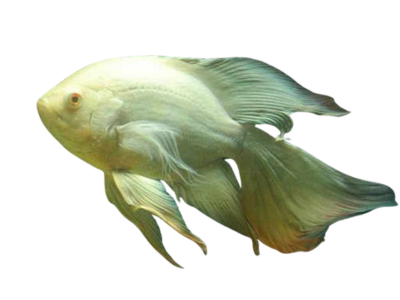
Green Oscar
Green Oscars possess a dark base color which appears as greenish or dark and they have patterns which change their appearance according to the lighting conditions and the emotional state of the fish. The fish display an intriguing quality because they display a color transformation that results in darker appearances during the day and lighter appearances during nighttime.
The fish show a unique appearance because many collectors want to own them as they display an uncommon appearance that differs from Tiger or Red Oscars. While they display subtle colors, their natural appearance creates a tranquil wild look that many collectors find appealing.
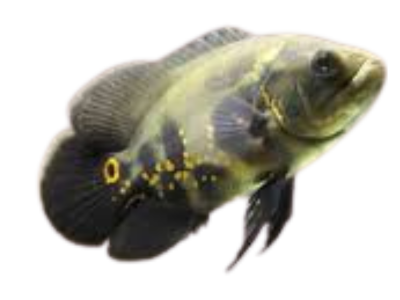
White Oscar
White Oscars display their nearly complete white body color which creates a sanitary and stylish appearance. The fish create a striking visual effect in well-kept aquariums which allows them to serve as the primary focal point of the tank.
White Oscars possess an increased sensitivity to bright light and unsatisfactory water conditions because of their pale coloration. The fish body shows signs of stress and dirt accumulation. The fish require stable water conditions and optimal filtration and regular aquarium upkeep to maintain their health and appearance.
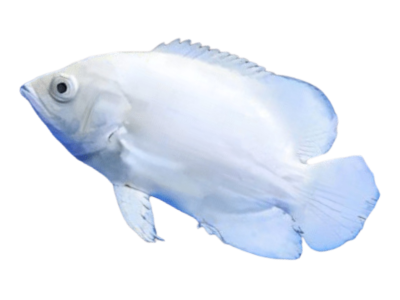
Wild Oscar
Wild Oscars represent the closest resemblance to natural Oscar fish that exist in freshwater systems. The fish maintain a dark body appearance which displays natural orange patterns that mimic the original South American fish species. The fish display exceptional strength with active behavior that makes them perfect for large aquariums.
Wild Oscars appeal to aquarists because they display a powerful body appearance which reflects their original natural design. The fish showcase their authentic natural beauty which enables them to capture their habitats for essential survival activities.
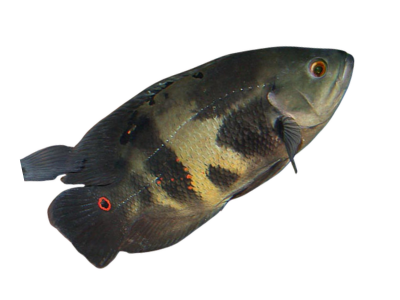
Gold Oscar
Gold Oscars possess a bright golden color which becomes especially brilliant under optimal aquarium lighting. The body color of the fish ranges from light yellow to dark golden orange based on its dietary intake.
The Oscars make excellent centerpiece fish because their vibrant color attracts immediate attention. The Gold Oscar creates a stunning appearance in a dark tank with clean decorations which produces a warm ambient light for the aquarium.
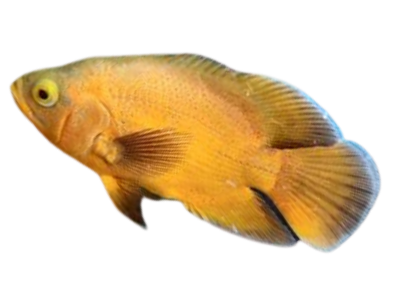
Pink Oscar
Pink Oscars exhibit a soft shade of pink which creates a distinct appearance when compared to other Oscar types. The species exists as a color variation which includes albino and specially bred strains.
Pink Oscars exist as a rare fish species because their special coloration makes them highly desirable to collectors. The aquariums look especially bright and clean which leads to visitors talking about the unique appearance of the fish.
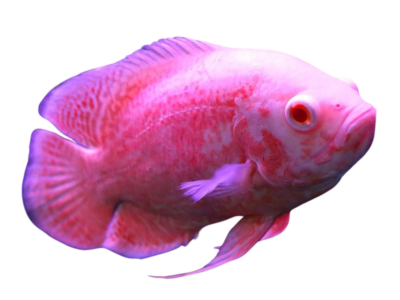
Platinum Oscars
Platinum Oscars have a silver-white or pale metallic body with a smooth, shiny finish. Their color often looks more metallic and glossy compared to normal White or Albino Oscars.
They are sometimes confused with White or Albino Oscars, but the shiny, reflective look of a Platinum Oscar makes it different. These fish look very elegant and modern, especially in tanks with strong lighting and minimal decoration.
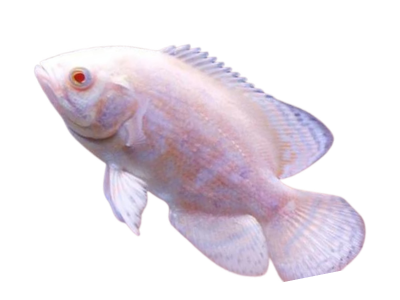
Albino Oscar
Albino Oscars have a white or pale body with red or pink eyes because they lack dark pigment. This gives them a very striking and beautiful appearance. They are one of the most popular special Oscar varieties in the hobby.
However, because they lack pigment, Albino Oscars are more sensitive to strong light and can get stressed more easily. They do best in tanks with controlled lighting, good hiding places, and very clean water.
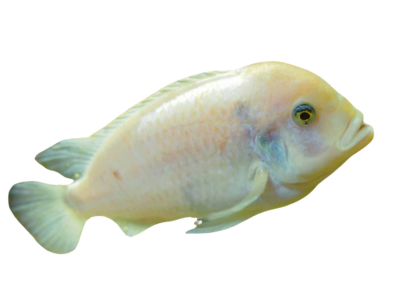
Lutino Oscar
Lutino Oscars look similar to Albino Oscars but usually have slight yellow or orange tones in their body color and lighter eyes. This gives them a warmer and softer look compared to pure Albinos.
They are bright, attractive, and look great in display tanks. Like Albinos, they may also be a bit sensitive, so stable water conditions and gentle lighting help keep them healthy and stress-free.
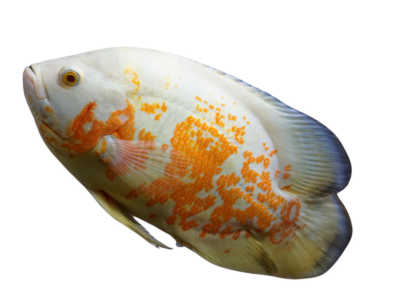
Black Oscar
Black Oscars have a mostly dark or black body, sometimes with faint orange or red patterns. Their deep, dark color gives them a strong, bold, and powerful look, especially in large aquariums.
They look especially impressive when kept in tanks with light-colored backgrounds or sand, which makes their dark body stand out even more. While not as colorful as red or gold types, they have a strong and dramatic presence.
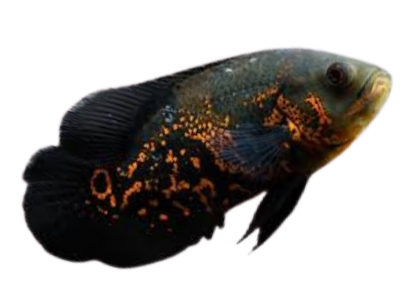
Blue Oscar
Blue Oscars show a bluish or electric blue shine on their body, which is usually the result of selective breeding. This makes them quite rare and highly attractive in the aquarium hobby.
Their color often looks best under good lighting, where the blue shine becomes more visible. Because they are uncommon, Blue Oscars are often kept by hobbyists who want something unique and different from standard Oscar varieties.
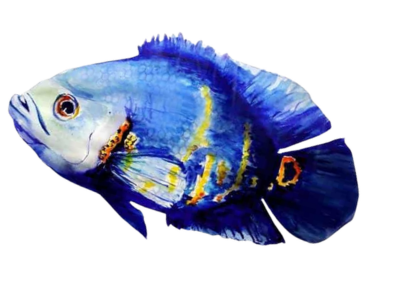
Copper Oscar
Copper Oscars have a brownish-golden or copper-colored shade with a warm, earthy tone. This gives them a very natural and calm appearance, especially in tanks decorated with rocks and driftwood.
They are a great choice for natural-style aquariums and look beautiful under soft, warm lighting. Their color is not very bright, but it is rich, deep, and elegant in its own way.
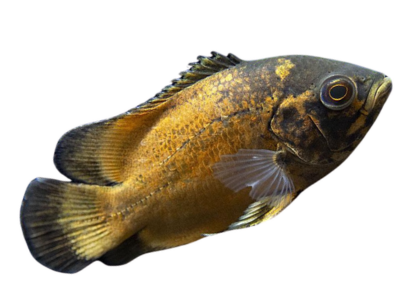
Longfin Oscar
Longfin Oscars are similar to normal Oscars but have much longer fins, which makes them look more graceful and decorative. Their swimming style looks slower and more elegant because of these extended fins.
Just like Veil Tail Oscars, Longfin Oscars need extra care. Sharp decorations or aggressive tank mates can easily tear their fins, so a peaceful setup with smooth décor is best for them.
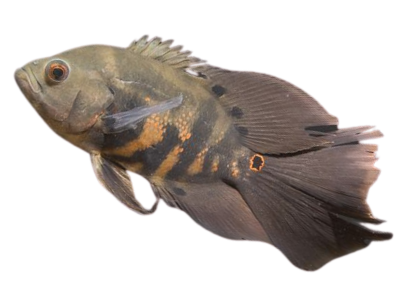
Chocolate Oscar
Chocolate Oscars have a deep brown or dark chocolate color, which gives them a very classy and mature look. They are not as flashy as red or gold Oscars, but their unique, rich color makes them stand out in a different way.
They are relatively less common and are often chosen by hobbyists who prefer more subtle and elegant fish instead of very bright ones.
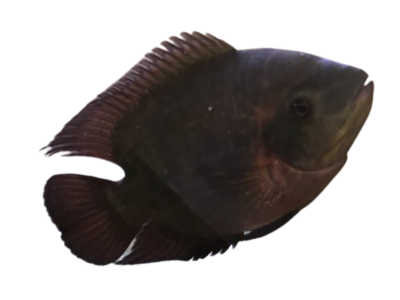
Leopard Oscar
Leopard Oscars have a spotted pattern like a leopard, with a mix of dark and orange spots spread across their body. This makes them one of the most decorative and eye-catching patterned Oscar types.
No two Leopard Oscars look exactly the same, which makes each
fish feel special. Because of their beautiful pattern, they are very popular among collectors and display tank owners.
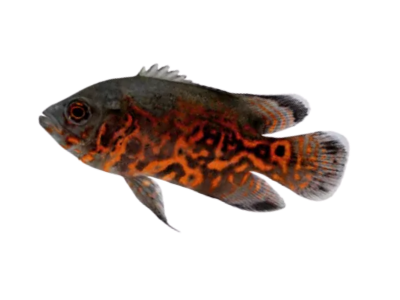
Red Chili Oscar
Red Chili Oscars are known for their very bright red or fiery orange color. Their color looks intense and bold, and they often become the center of attention in any tank.
With a good diet and proper care, their red color can become even deeper and more vibrant over time. These fish are perfect for hobbyists who love strong, bright, and dramatic colors in their aquarium.
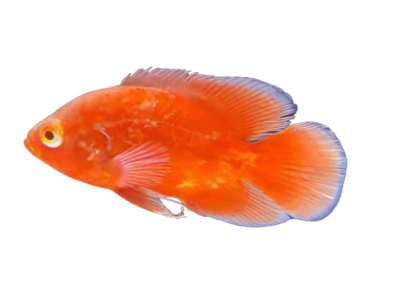
Bumble Bee Oscar
Bumble Bee Oscars are known for their bold black and bright yellow/orange stripe patterns, which look very similar to the colors of a bumble bee. These strong contrast markings make them one of the most eye-catching patterned Oscar varieties. The dark base color with vertical golden or yellow bands gives them a wild, powerful, and dramatic appearance in the aquarium.
This variety is very popular among hobbyists who love high-contrast and unique patterns. Under good lighting, the stripes become even more visible and sharp. Like other Oscars, their color and pattern look best when they are kept in clean water and fed a high-quality diet. In a large tank, a healthy Bumble Bee Oscar quickly becomes a centerpiece fish because of its striking look and confident behavior.
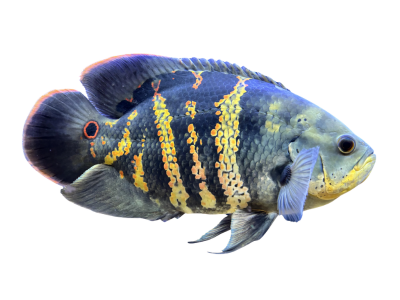
Mango Oscar
Mango Oscars are loved for their soft orange, peach, or mango-like color, which gives them a warm and smooth appearance. Unlike heavily patterned Oscars, Mango Oscars usually have a more solid and clean color tone, making them look calm, elegant, and very attractive in bright aquariums.
Their color can range from light orange to deeper mango shades, and with proper diet, good lighting, and clean water, their color often becomes richer and more glowing over time.
Mango Oscars are perfect for aquarists who prefer bright but smooth, non-patterned colors. Because of their gentle and glossy look, they stand out beautifully in simple tank setups and make the aquarium look more vibrant and lively.
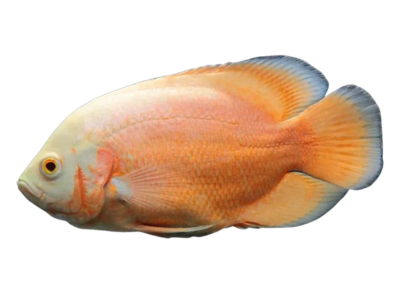
Faq
1. How big do Oscar fish grow?
Oscar fish can grow up to 10–14 inches (25–35 cm) in length. Because of their large size, they need a big aquarium to stay healthy and comfortable.
2. What is the minimum tank size for an Oscar fish?
For one Oscar, a minimum of 75 gallons is recommended. If you keep two Oscars, you should go for 100–125 gallons or more.
3. Are Oscar fish aggressive?
Yes, Oscars can be territorial and aggressive, especially towards smaller fish. They are best kept alone or with other large, strong fish that can handle their behavior.
4. Can Oscars recognize their owner?
Yes! Oscars are often called “water dogs” because they can recognize their owner, come to the glass, and even beg for food.
5. What do Oscar fish eat?
Oscars are omnivores. They can eat high-quality pellets, sticks, live or frozen foods (like worms and shrimp), and sometimes vegetables. A varied diet helps keep their color bright and health strong.
6. How long do Oscar fish live?
With proper care, Oscars can live 10 to 15 years, and sometimes even longer in a well-maintained aquarium.
7. Can different types of Oscars be kept together?
Yes, different Oscar types can be kept together if the tank is large enough. However, aggression can still happen, so space and proper tank setup are very important.
8. Are Albino and White Oscars more sensitive?
Yes, Albino, White, and Lutino Oscars are more sensitive to strong light and poor water conditions. They need clean water and slightly softer lighting.
9. How often should I change water for Oscar fish?
Because Oscars produce a lot of waste, you should do 25–30% water changes every week to keep the water clean and healthy.
10. Why is my Oscar changing color?
Color changes can happen due to stress, mood, lighting, diet, or water quality. A healthy Oscar usually shows brighter and stronger colors.
11. Can Oscars live with small fish?
No, small fish usually become food for Oscars. It’s better to keep them with large, strong tank mates or alone.
12. Do longfin and veil tail Oscars need special care?
Yes. Their long fins are delicate and can get damaged easily. Avoid sharp decorations and aggressive tank mates.
13. Which Oscar type is best for beginners?
Tiger Oscar and Red Oscar are usually best for beginners because they are hardy and adapt well to aquarium life.
14. How can I improve my Oscar’s color?
Good water quality, proper lighting, and a high-quality diet will help bring out deeper and brighter colors in your Oscar.
15. Are rare types like Blue, Mosaic, and Chocolate Oscars harder to keep?
Not really. Their care is similar to normal Oscars, but they may be more expensive and harder to find.
Conclusion
Oscar fish represent the most intriguing and character-rich freshwater aquarium fish that exist in the aquarium hobby. The Oscar fish displays intelligence with its courageous behavior and its wide range of colors and patterns that includes Tiger Red Gold and rare Blue Mosaic Chocolate. Oscars provide fish enthusiasts with an extensive selection of fish that ranges from bright eye-catching varieties to gentle fish that display sophisticated colors. The healthy appearance of these large and strong fish requires them to have spacious tanks with clean water and proper maintenance. An Oscar fish will transform into the main attraction of your aquarium space if you provide it with appropriate environment and dedicated care.
Read more
